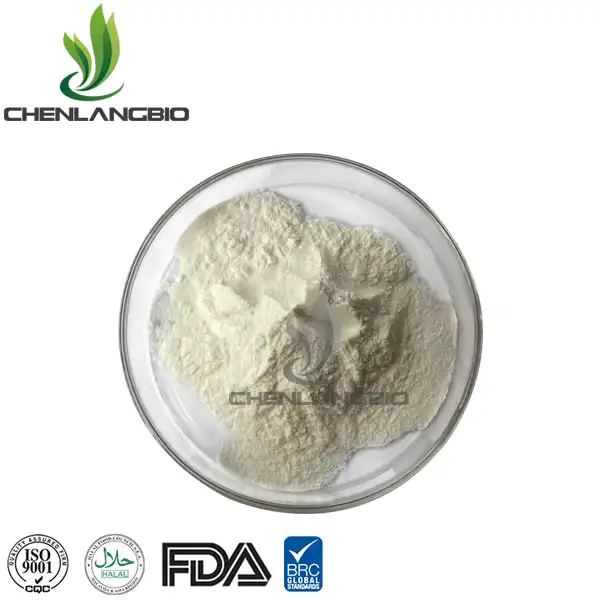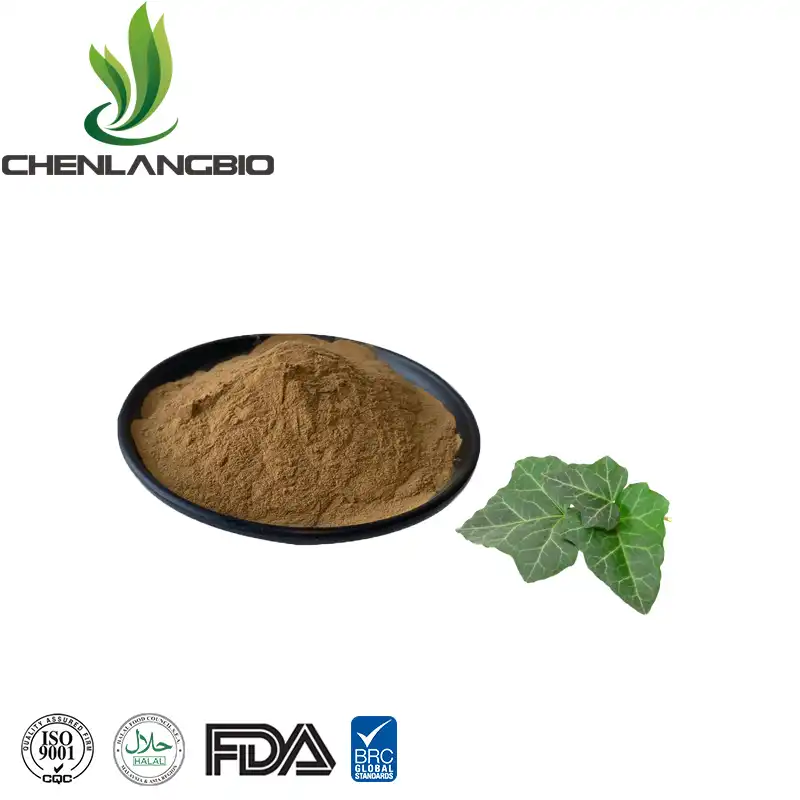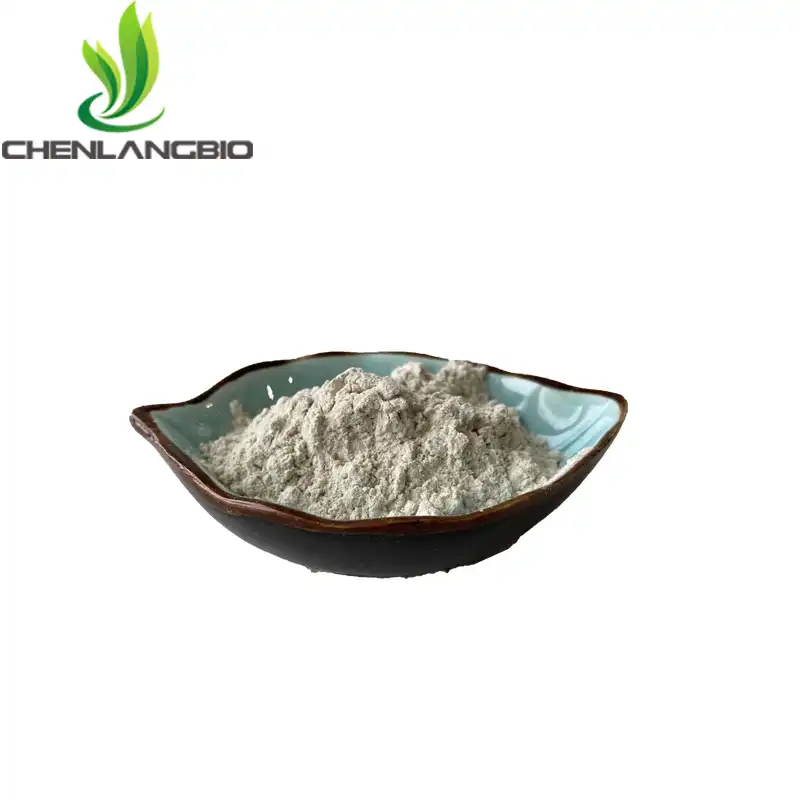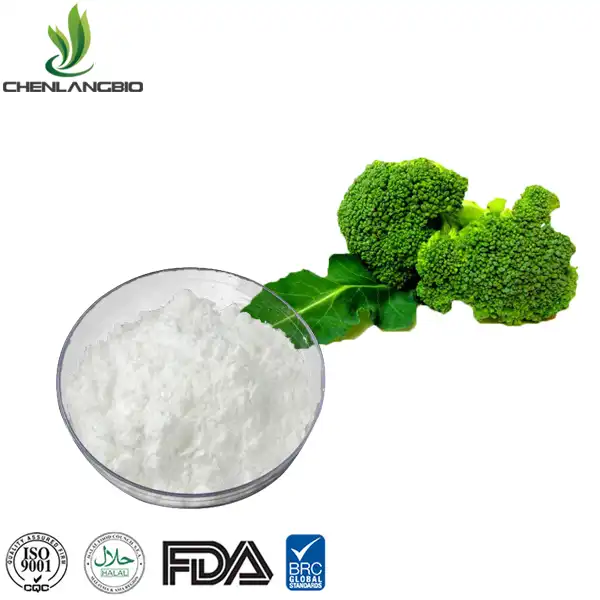Licochalcone A
Stock: 50 Kg
Specification: 20%, 70%
MOQ: 100g
CAS: 58749-22-7
Package: 100g/foil bag, 1Kg/Aluminum foil bag
Ship Time: within 2~3 working days after you order
Payment Way: Bank Transfer, TT, Western Union, Paypal and so on
Our Advantage: Factory manufacture, wholesale price, high quality
- Fast Delievery
- Quality Assurance
- 24/7 Customer Service
Product Introduction
We are Licochalcone A supplier and manufacturer. It is a flavonoid derived from the root of the Chinese licorice plant, Glycyrrhiza inflata. It has been used for centuries in traditional Chinese medicine as an anti-inflammatory, antimicrobial, and antioxidant agent. In recent years, It has gained attention as a promising ingredient in skincare due to its various skin benefits.
What is Licochalcone A Powder?
Licochalcone A is a natural compound that can be found in the roots of Chinese licorice plants (Glycyrrhiza inflata or Glycyrrhiza glabra). It belongs to a group of compounds known as chalcones, which are characterized by their aromatic structure and are often found in various plants.
Why Choose Our Company?
★Our company has successively passed BRC system certification, GMP system certification, national laboratory (CNAS) certification,ISO9001, ISO22000, ISO14001 and so on;
★Our powder can pass “The Third Party Test”;
★Through professional self-owned planting bases, strict quality system and global procurement network, we guarantee the quality of raw material;
★We are the world's leading professional manufacturer of licorice products, the annual processing capacity of licorice raw materials can reach 15,000 tons, main products are glycyrrhizinate dipotassium salt, glabridin, glycyrrhetinic acid, licorice flavonoids, licorice paste, licorice cream, monoammonium glycyrrhizinate and so on.
★Our products are exported to Europe, North America, South America, Russia, Australia, New Zealand, Southeast Asia and more than 50 countries. We do not add other additives in our raw powder, it is 100% natural extract from plant.
Please send inquiry to Email: admin@chenlangbio.com if you need to buy licorice extract.

Physical Properties:
Name | Licochalcone A |
CAS | 58749-22-7 |
Molecular Formula | C21H22O4 |
Molecular Weight | 338.39698 |
Specifications | 20%, 70% |
Appearance | Pale yellow powder |
Why Does Licochalcone A Inhibit Tyrosinase?
Licochalcone A has been studied for its potential inhibitory effects on tyrosinase, an enzyme involved in the synthesis of melanin—the pigment responsible for skin, hair, and eye color. While the exact mechanism of Licochalcone A's inhibition of tyrosinase is not fully understood, several studies suggest various factors that may contribute to its inhibitory activity:
●Anti-Inflammatory Properties: Licochalcone A is known for its anti-inflammatory properties. Inflammation can stimulate melanin production, and by reducing inflammation, Licochalcone A may indirectly inhibit tyrosinase activity.
●Antioxidant Activity: It possesses antioxidant properties, which means it can neutralize free radicals. Oxidative stress can contribute to melanin synthesis, and by scavenging free radicals, Licochalcone A may help mitigate oxidative stress-related melanin production.
●Downregulation of Tyrosinase Expression: Some studies suggest that Licochalcone A may influence the expression of tyrosinase at the genetic level. By downregulating the expression of tyrosinase, it can reduce the overall activity of the enzyme, leading to decreased melanin synthesis.
●Melanosome Maturation Inhibition: It has been reported to inhibit melanosome maturation, the process by which melanin is packaged and transported within melanocytes. By disrupting this maturation process, Licochalcone A may contribute to reduced melanin synthesis.
●Direct Enzyme Inhibition: Some studies propose that Licochalcone A may directly inhibit the catalytic activity of tyrosinase. The chalcone structure of Licochalcone A may interact with the active site of the enzyme, hindering its ability to catalyze the conversion of tyrosine to melanin.
Licochalcone a Skin Care:
●Anti-inflammatory Properties
One of the primary benefits of licochalcone A powder is its potent anti-inflammatory properties. Inflammation is a major contributor to many skin concerns, including acne, rosacea, and eczema. It has been shown to inhibit inflammatory cytokines and enzymes, reducing redness, swelling, and irritation in the skin. It is particularly effective in calming sensitive, reactive skin.
●Antimicrobial Effects
Licochalcone A also has natural antimicrobial properties, which make it useful in treating acne-prone skin. It inhibits the growth of Propionibacterium acnes, bacteria that contributes to the formation of acne. It also helps to regulate sebum production, which further reduces the risk of breakouts.
●Antioxidant Activity
Licochalcone A is a powerful antioxidant, meaning that it helps to protect the skin against free radical damage. Free radicals are unstable molecules that are generated by factors such as UV radiation, pollution, and smoking. They can cause oxidative stress, which leads to premature aging, hyperpigmentation, and other common skin concerns. Antioxidants can neutralize free radicals, preventing them from causing damage to the skin.
●Skin Brightening
It has also been shown to have skin-brightening effects. It can help to reduce the appearance of hyperpigmentation, such as age spots and sun damage. It works by inhibiting the activity of tyrosinase, the enzyme responsible for melanin production in the skin. This helps to even out skin tone and impart a more radiant, youthful appearance.
How to Use Licochalcone A in Skincare?
Licochalcone A is most commonly found in skincare products formulated for sensitive or acne-prone skin. It is often combined with other active ingredients, such as niacinamide or salicylic acid, to provide a comprehensive solution to common skin concerns. It can be found in cleansers, toners, serums, and moisturizers.
Due to its natural properties, licochalcone A is generally well-tolerated by most skin types. However, it is still important to patch-test new products and consults with a dermatologist if you have any concerns about using this or any other new ingredient in your skincare routine.










